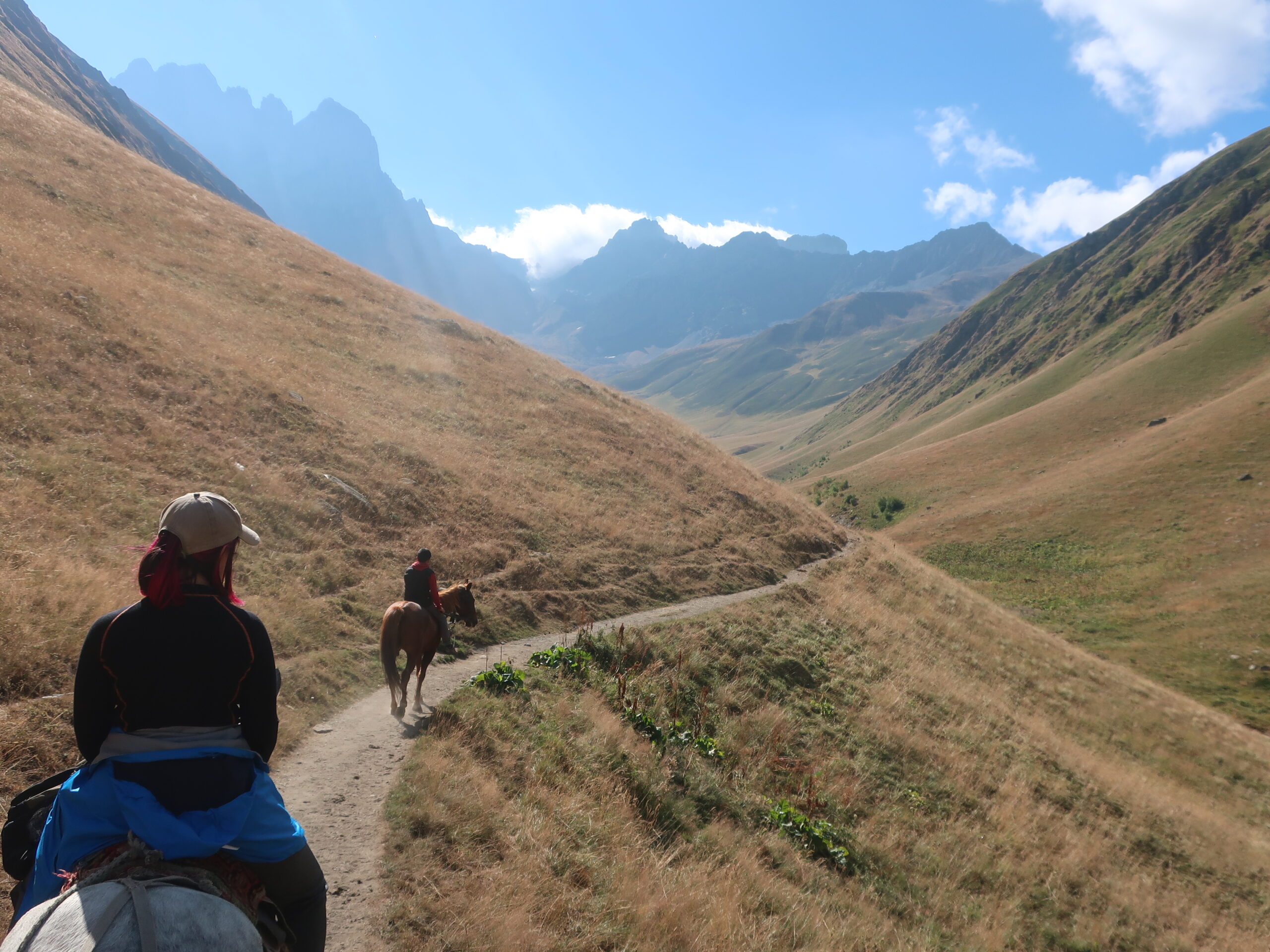Travels in Georgia] (30) Discovering Dostoevsky's "The House of Death" in the Juta Valley - The most memorable place during my stay in the Kafkers.
The Kafkers' stay is now in its final stages.
The destination for the day was the Juta Valley, an unexplored region famous for its spectacular scenery, especially in the Kafkers.
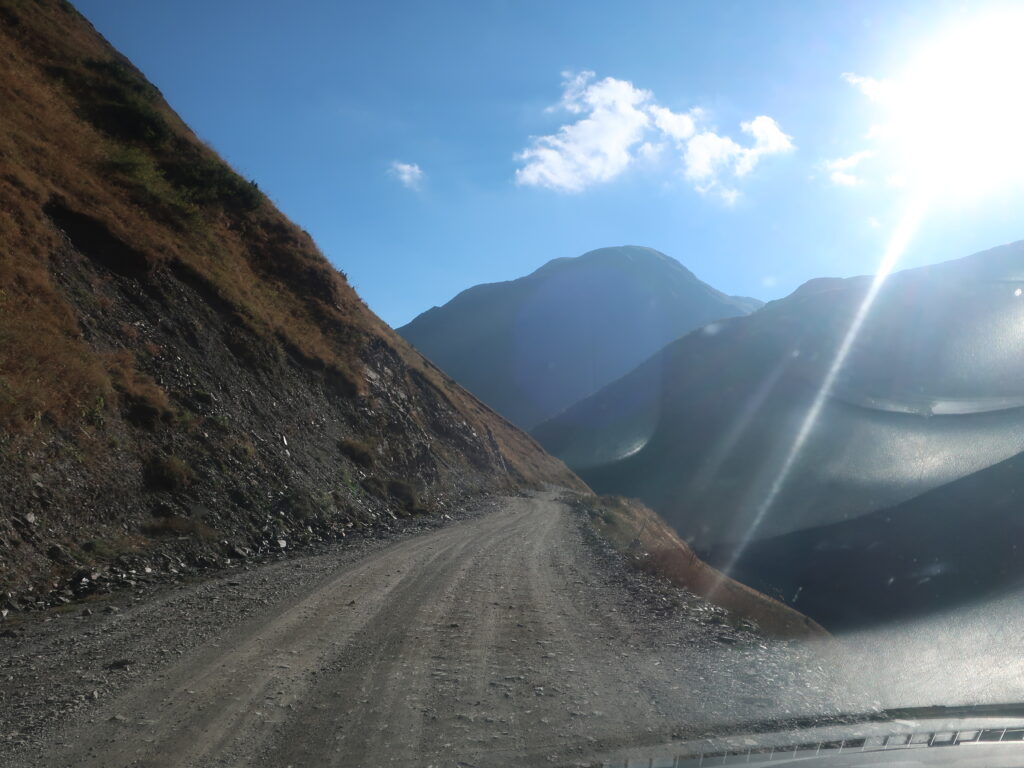
It has become a familiar sight every time, but today, too, we are on a tremendous road.
From Kazbeki to Juta Valley
- Takahiro Ueda @Hakodate Kinshokuji Temple (@kinsyokuzi) October 6, 2022
Still going down the road as if it were about to fall off.
In fact, it is said that the danger of landslides is increasing and has become a problem in the area.# Georgia pic.twitter.com/h7TyAlMuap
The road still looks as if it is about to fall down.
In fact, it is said that the danger of landslides is increasing and has become a problem in the area.
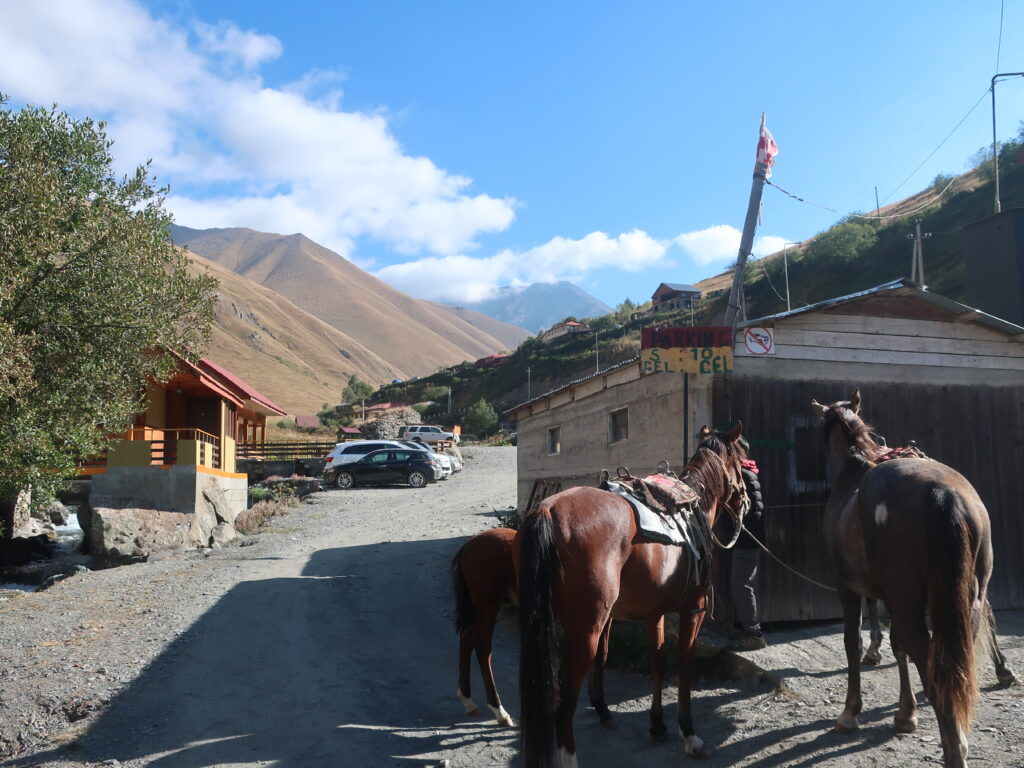
Arrive at Juta Village at the foot of Juta Valley.
This is where we get out of the car. From here it's horses.
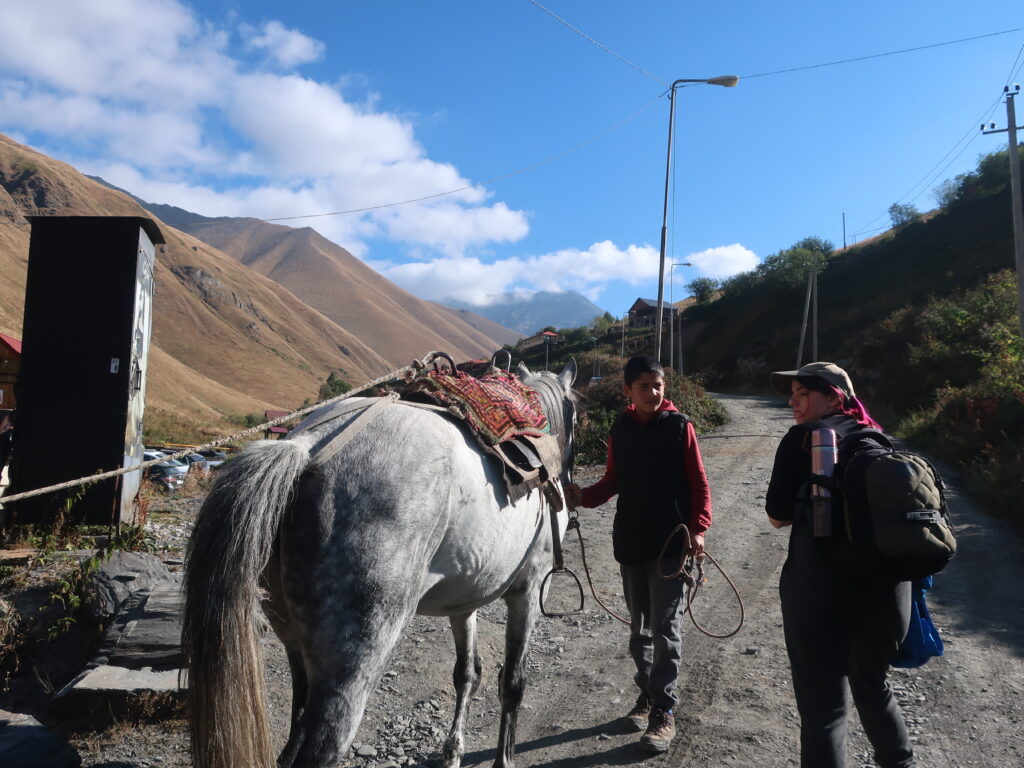
This boy will pull the horse and lead us. Later I would be astonished by this boy.
Now, get on your horse and let's go.
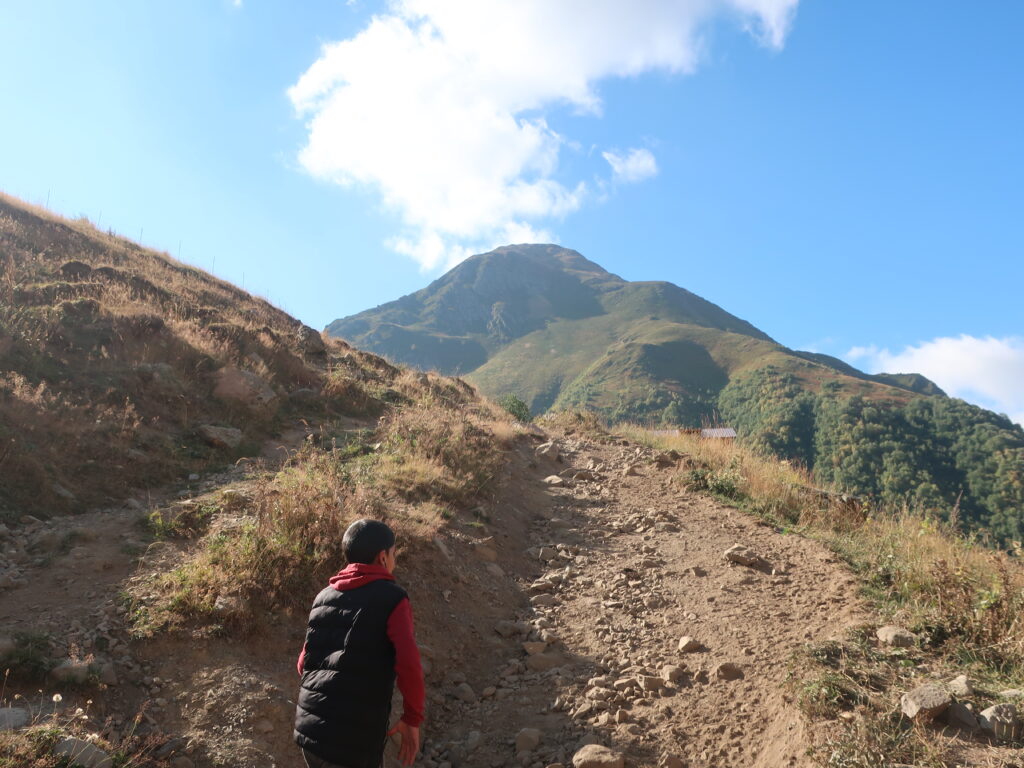
We rode horses from the village of Juta at the foot of the Juta Valley. We were told that the first steep hill was dangerous, so we had our horses pulled, but this boy would later surprise us. I may say that meeting him was the biggest shock of the trip.# Georgia pic.twitter.com/6v1ybrvmOz
- Takahiro Ueda @Hakodate Kinshokuji Temple (@kinsyokuzi) October 7, 2022
From the village, the trail suddenly climbs up a very steep slope. The footing was so bad that even the horses wobbled. I was a little worried. I wonder what will happen next...
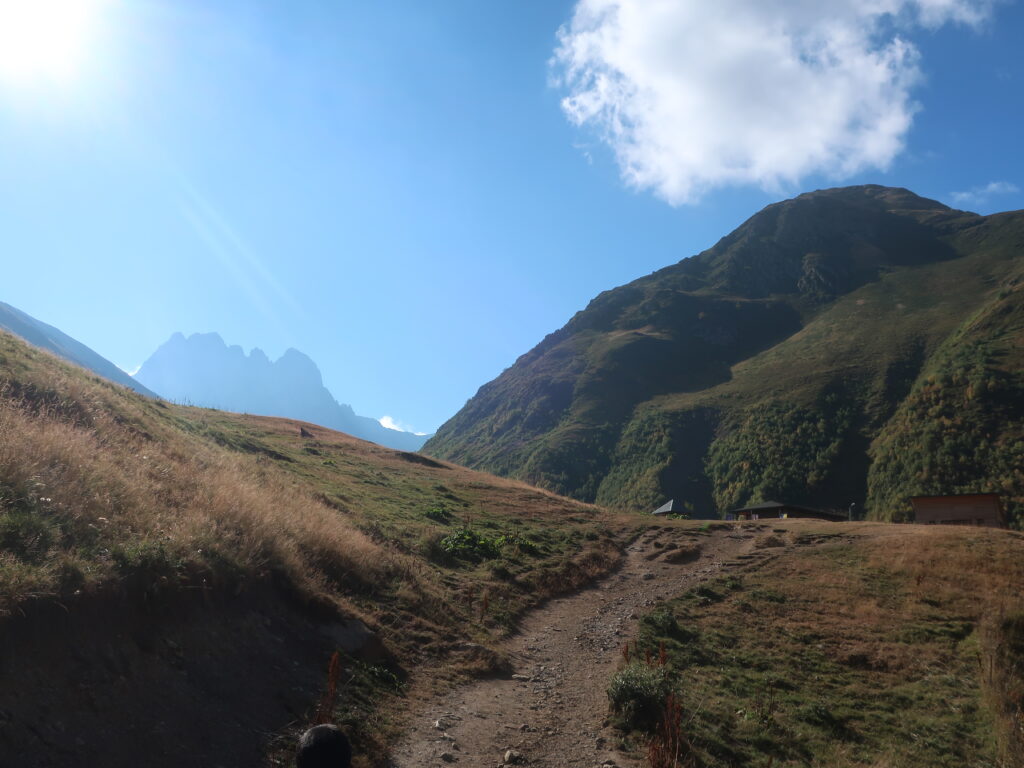
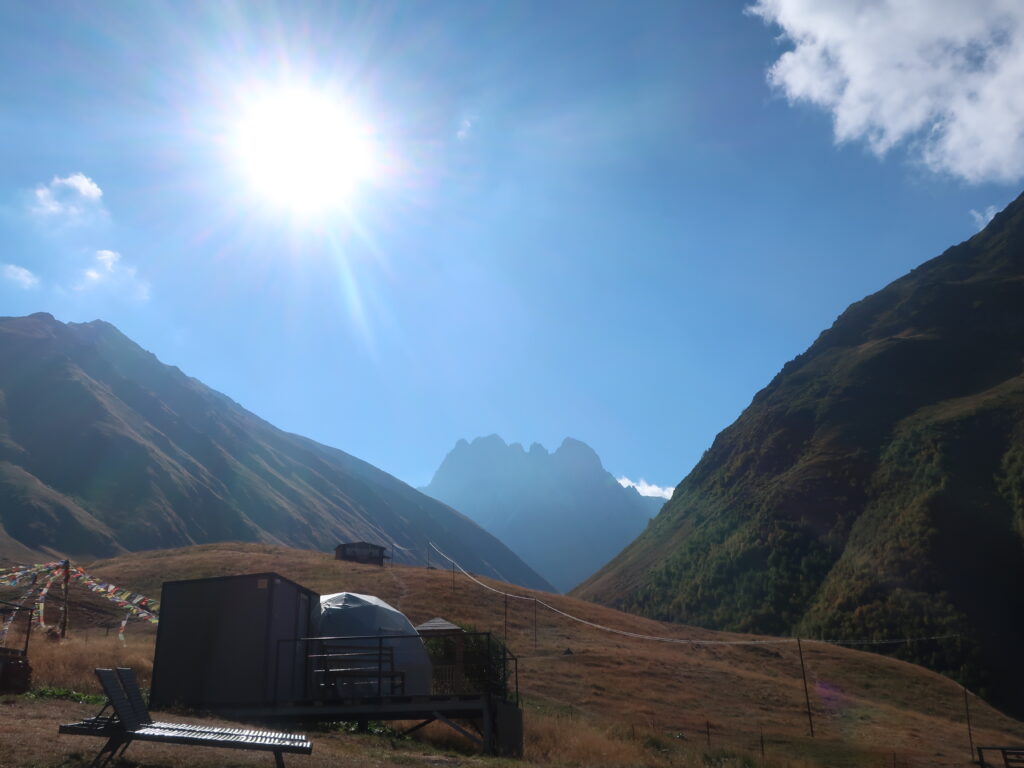
After climbing the first hill, the Juta Valley suddenly appeared.
The jagged mountain in front is Chowhebi Mountain, a symbol of the Juta Valley.
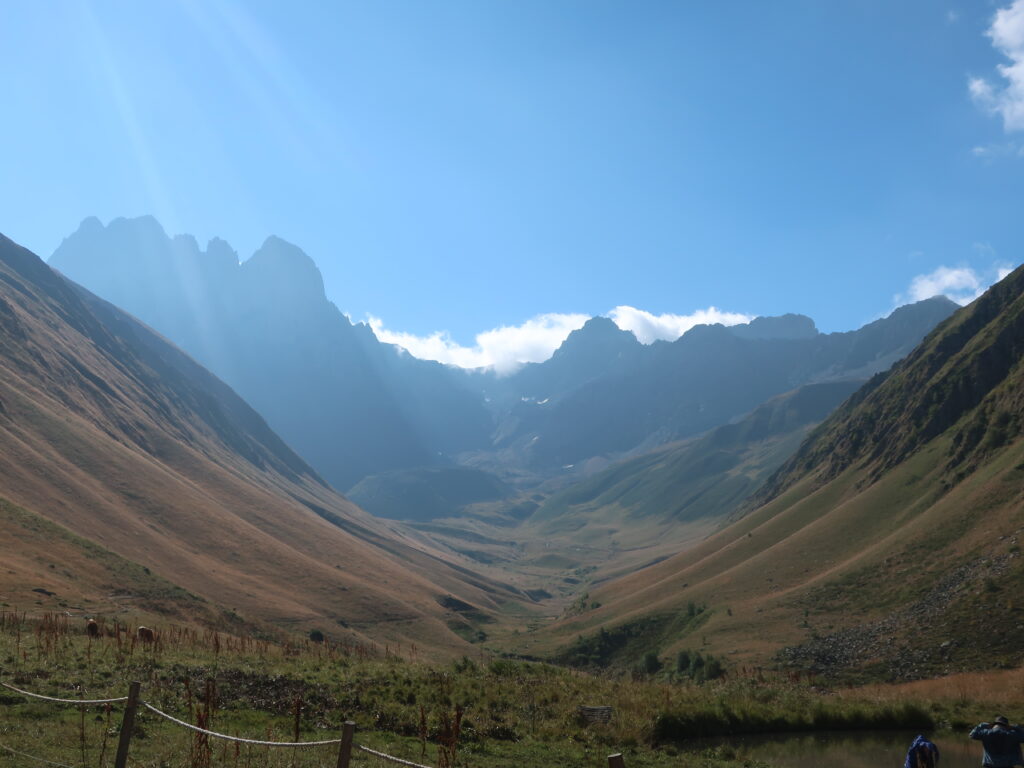
Oh no, I'm in trouble... I can't put it into words any longer.
The view is so overwhelming that nothing else matters.
A feeling as if I were being swallowed up. Such words naturally came to mind.
It seems to render any attempt to analyze and understand meaningless.
All I could do was just stare blankly at it. That was the feeling.
Now they are going to walk here. And on horseback.
Come to think of it, I'll be riding in the wilds of Cuba at the end of that trip when I embark on my round-the-world trip in 2019. (Cattle Carts, Horseback Riding, and Behind-the-Scenes Tours: A Guide's Account of Cuba's Current Situation in Cuba (15)(See also.)
What is it? I don't particularly aim for it, but for some reason it just happens. It's a strange thing. It seems that at the end of a trip, I feel like riding a horse.
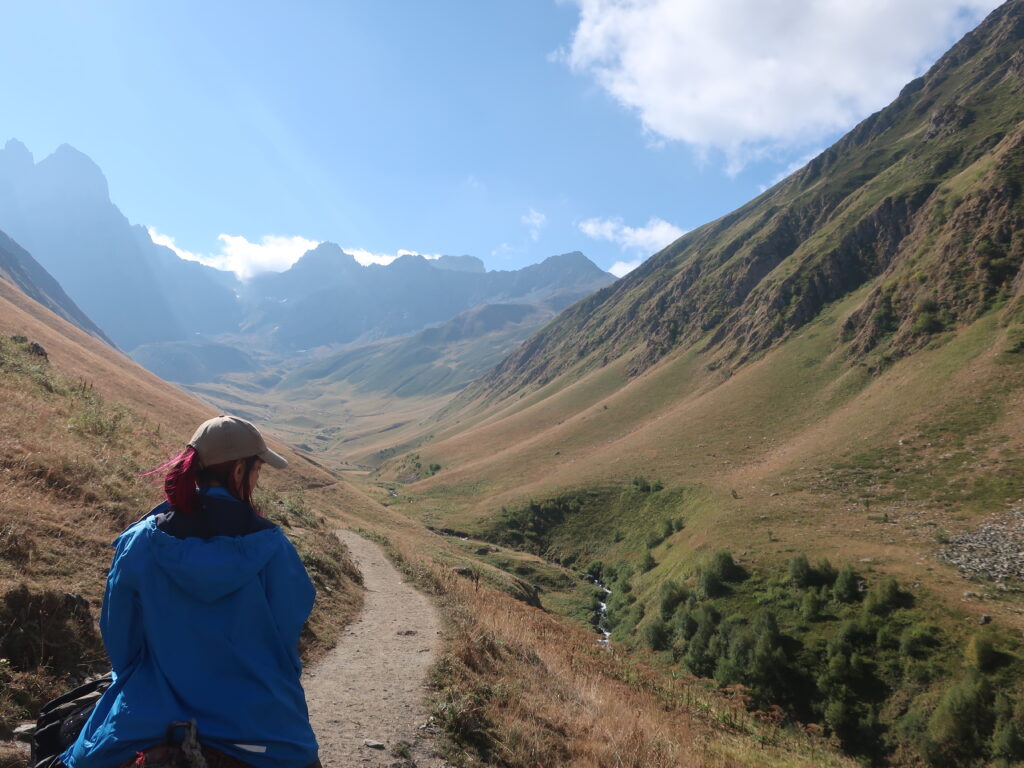
As soon as we started walking, the lead boy went away because his companion's horse had run away and he had to go catch it. I had no choice but to start with my guide. Well, I have full confidence in her, as she has been showing me around Georgia for a long time and has a lot of experience in riding horses. We would manage without the boy.
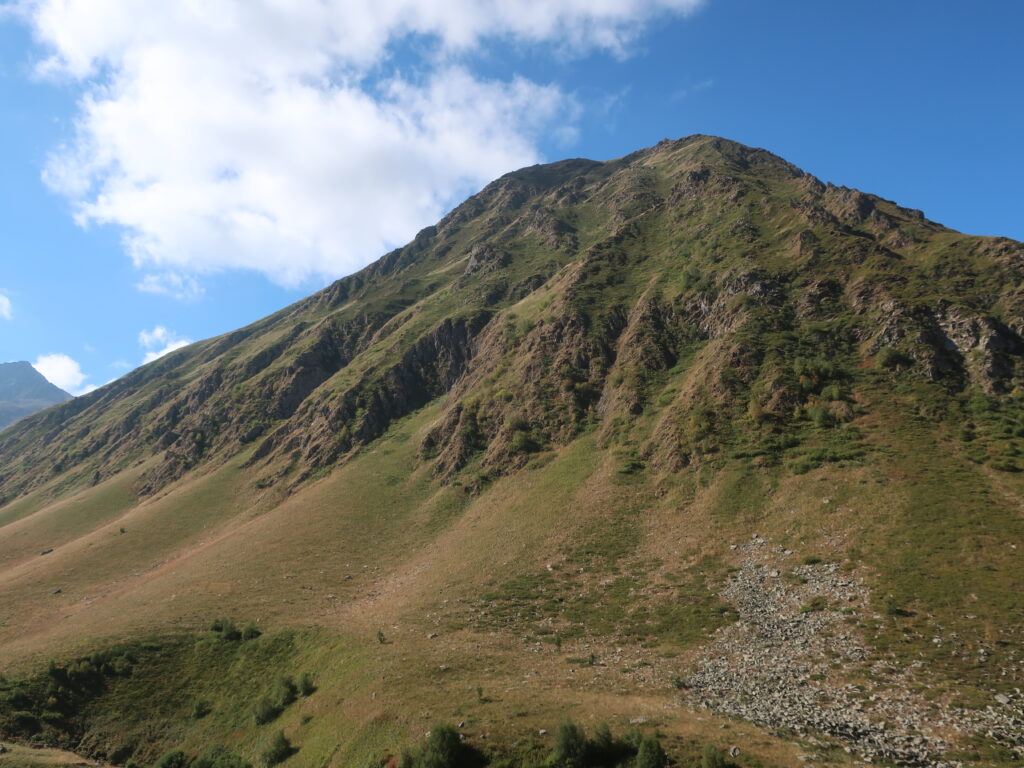
If you turn your gaze to the right, you will see a mountain face like a warped wall looming over you. The entire Juta Valley is covered in green and beautiful.
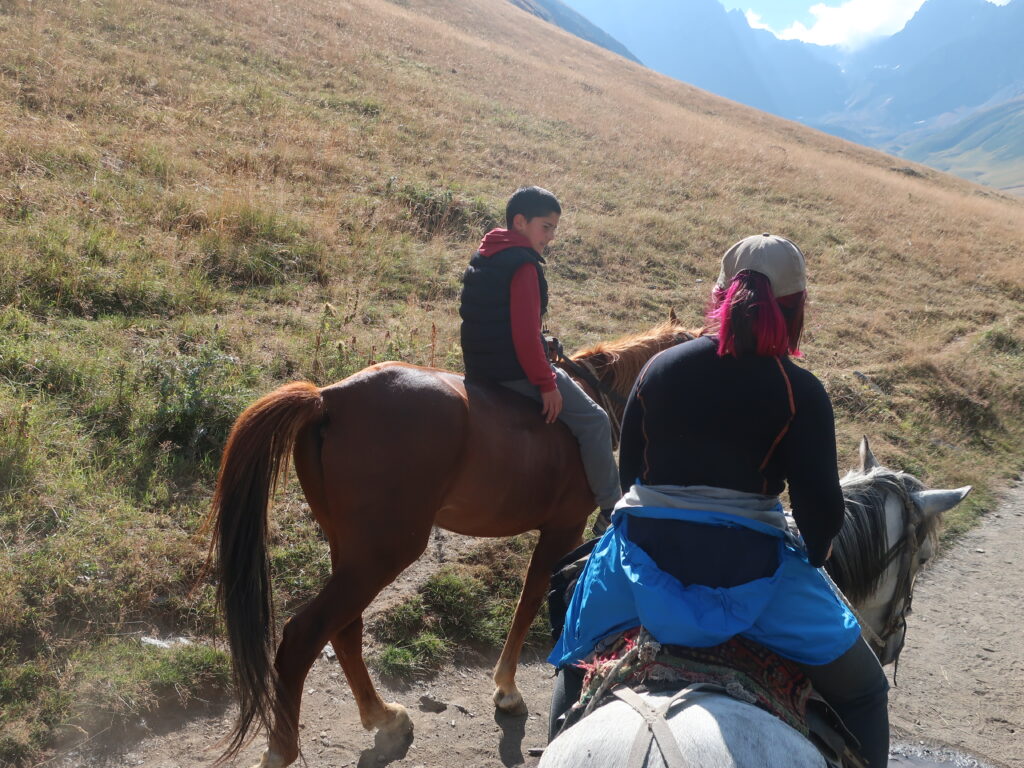
In the meantime, the boy returned. He came back earlier than I had expected.
And I couldn't help but look at him twice!
To my surprise, he was riding a horse without a saddle or stirrups! I thought I heard a horse running behind me, but it was him. He came galloping along without a saddle or stirrups.
I can't believe it...
Anyway, we were back to our original three-man team and resumed our trek.
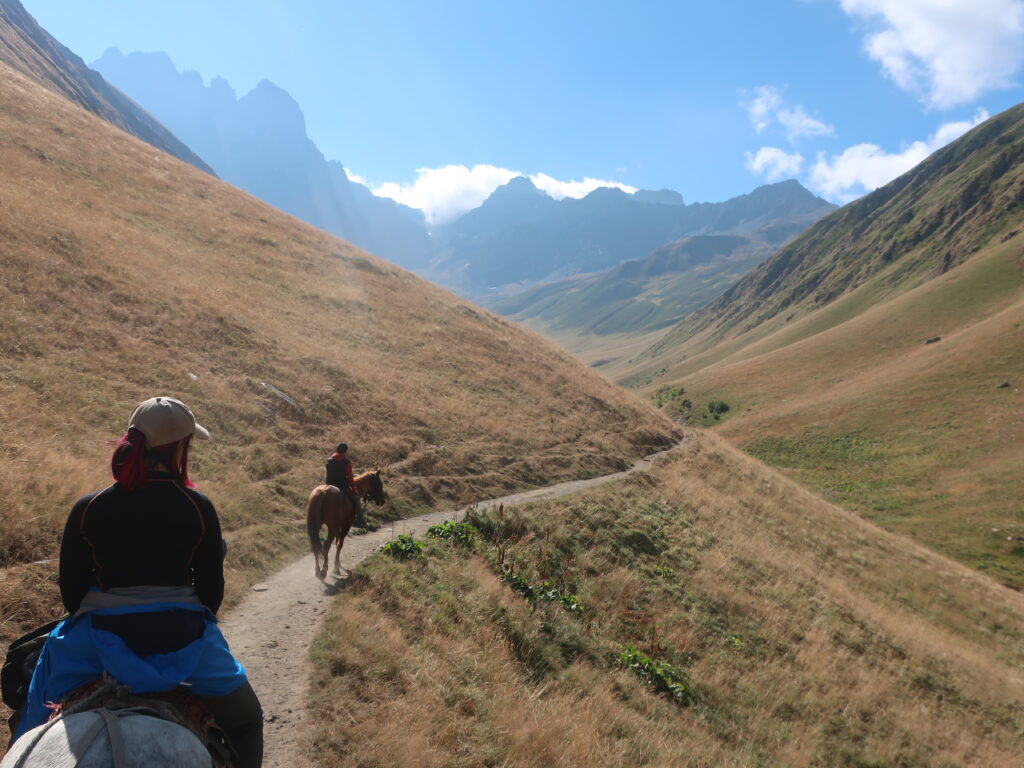
It's a hell of a view...
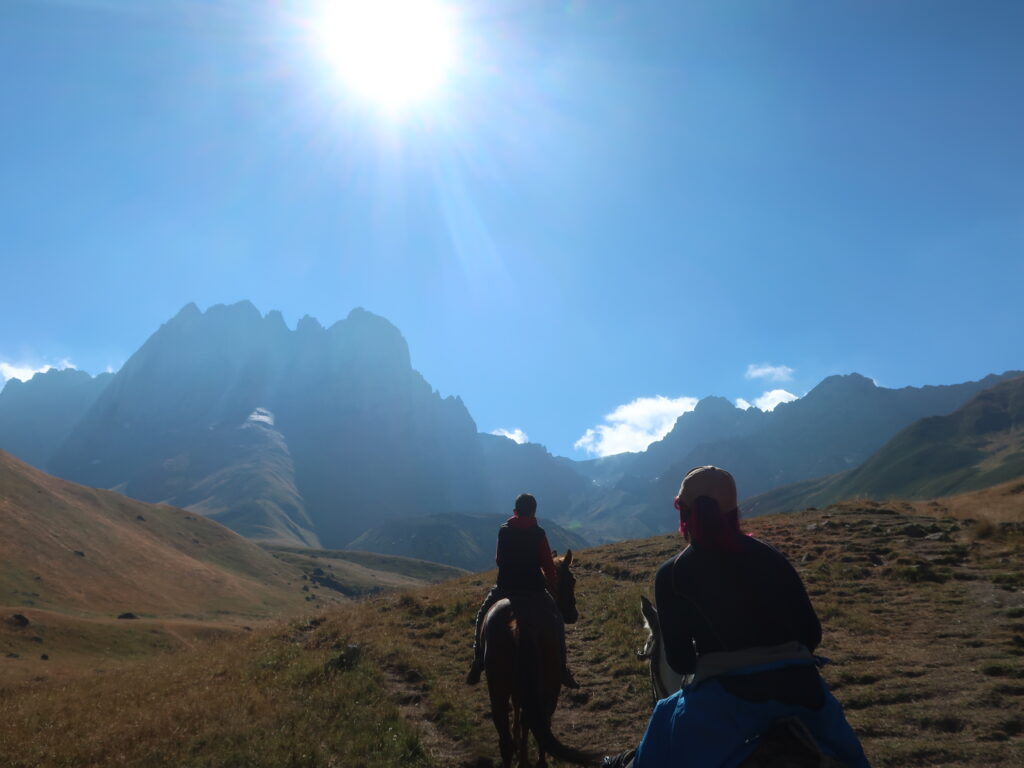
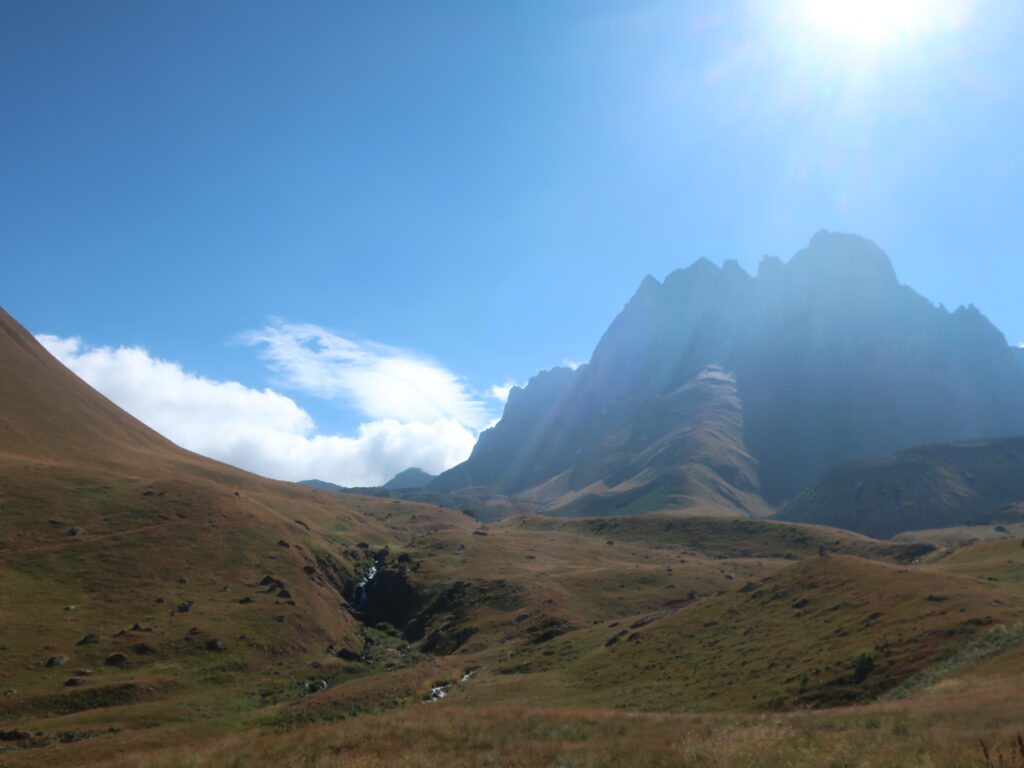
I am sure that Tolstoy would have seen this kind of scenery.
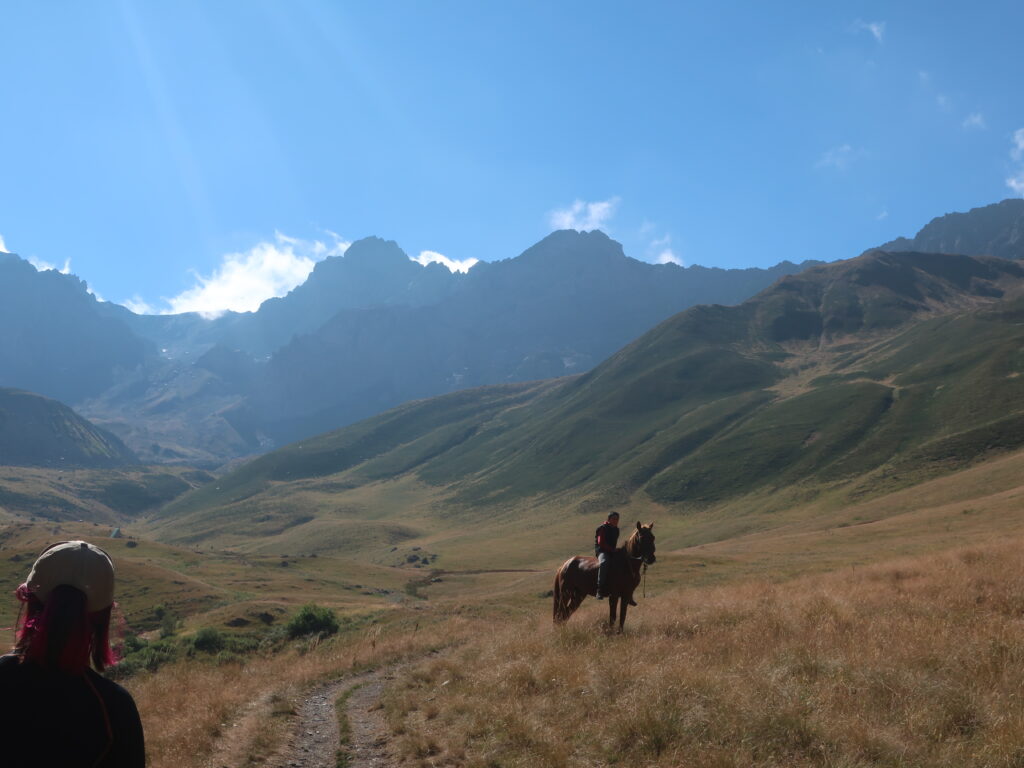
Still, I can't help but be amazed at this boy's ability to control a horse without a saddle or stirrups.
The boy guiding us was without a saddle or stirrups! And he's riding a young rambunctious horse, so he's not fit to carry a guest.
- Takahiro Ueda @Hakodate Kinshokuji Temple (@kinsyokuzi) October 10, 2022
I was truly moved by the thought that these must have been the kind of people Tolstoy met in the mountains. I was struck by their simple strength to live in a harsh world.# Georgia # Juta pic.twitter.com/VAWvB1oPHc
Perhaps meeting him was the most memorable part of the trip. He is a local horse caretaker who also leads visitors to the area. He is only 10 years old. He was doing a great job at that age and his behavior was almost as good as an adult's.
As I was following behind him and admiring this wonderful view, a sense of respect for him came naturally to me. I will never forget his voice when he led me to say "come," and it was so powerful and mature that I could not believe it was coming from a 10-year-old boy. Looking at him, I couldn't help but feel my own inadequacy. Would I be able to survive in such wilderness without any useful tools? No, absolutely not..!
I am sure that Tolstoy encountered this kind of thing many times.
People live in such a harsh mountain world.
I think their presence came as a shock to Tolstoy, who had lived among the aristocracy of Moscow and Petersburg.
The Russian army, which at the time considered itself civilized, came here with modern equipment. What Tolstoy saw, however, were the local people, who, despite their old-fashioned ways, could only be described as magnificent.
Russia prided itself on being civilized and scorned the people of the Kafkaes. But how powerfully the people living here live. Tolstoy must have been moved by this and had respect for them.
Meeting this boy has left a great impression on me.
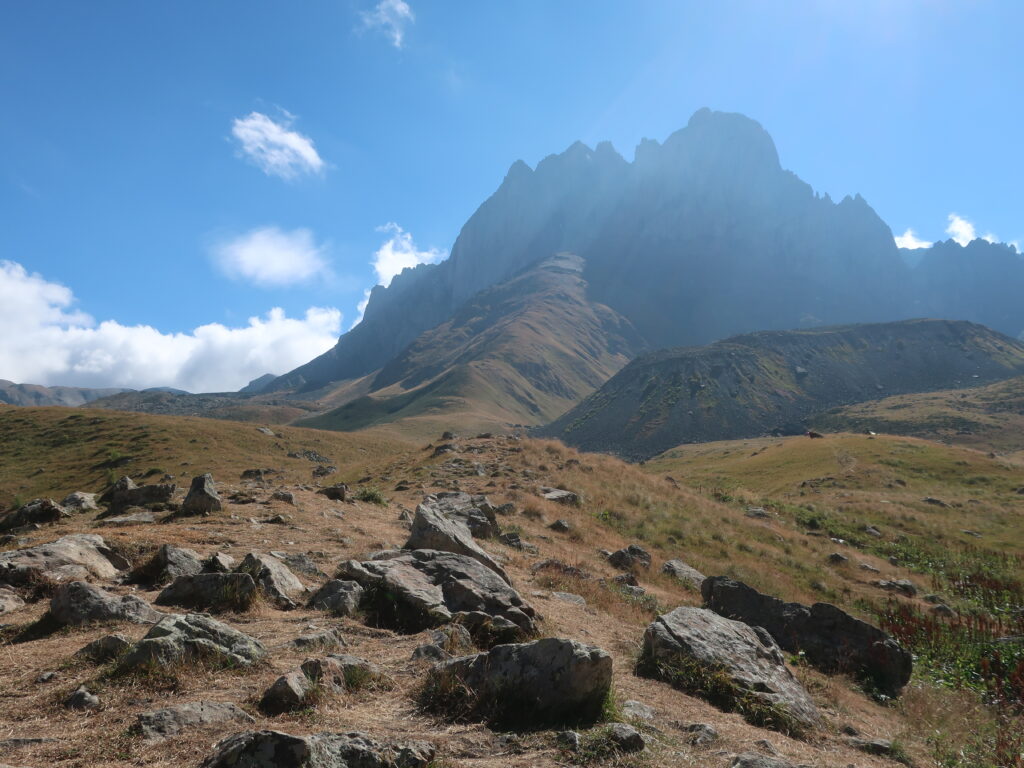
Tolstoy walked in a place like this...! It is as if Tolstoy's enormous spirit is manifested here...! And at the moment I thought that, I suddenly thought of Dostoevsky. For some reason, I was furiouslyThe Record of the House of Death."I wanted to read the
Whereas Tolstoy experienced what it means to be human and what it means to be free in the overwhelming grandeur and vastness of the Kafkaes, Dostoevsky saw "the infinite open land of Siberia" from behind bars and jail cells? He felt that he was.
I wondered if Dostoevsky's Siberian experience corresponded to Tolstoy's Kafkaesque experience, and when I thought about this, I felt keenly at this moment how important "Record of a House of Death" was to his work.
I realized the importance of going there and feeling many things firsthand.
I saw this pile of Kafkers and that's exactly what gave me a ravenous desire to read. I must read it now! I must read "The House of Death" while looking at this mountain!
Fortunately, I had my Kindle with me as my traveling companion, so I immediately ordered it and began reading "The House of Death.
Then I noticed again that the Kafkaesque mountain people also appeared in this work. Moreover, Dostoevsky had also depicted them favorably. The Kafkaes were connected to Dostoevsky.
The biggest gain of this trip was discovering "The House of Death" in Kafkaes. Here Tolstoy came into contact with overwhelming nature, saw people living there, and was shaken by their worldview. In the same way, Dostoevsky saw "man" in Siberia.
Nature or prison, both are environments, and the two were not overwhelmed by the environment itself, but by the people. I felt through this trip that the origin of the two was in the "human beings" they saw in their special environment.
This experience in the Juta Valley was the biggest gain of the trip. I discovered Dostoevsky's "The House of Death" in Kafkers.
The next article will finally be the final installment of "Impressions of Summer in Autumn. I would like to conclude this travelogue with a summary of the trip.
be unbroken
Next Article.
Click here to read the previous article.
Related Articles











